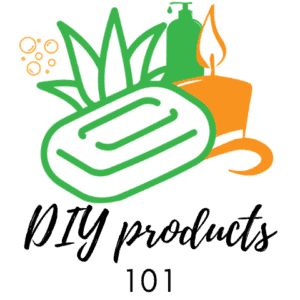Burnt soap is a disaster. It doesn’t look pretty, it smells bad, and using it should be completely avoided. But what if you did use it? What would actually happen?
Whether you’re seeking a fun hobby, saving money, or pursuing a new business venture, our step-by-step guide makes crafting spa products enjoyable and easy, perfect for hobbies, saving money, or starting a business. Explore 126+ recipes, from soaps to lotions, with our beginner-friendly Quick Start Guide. Ditch store-bought products with unknown chemicals and embrace personalized, high-quality creations that cater to allergies and sensitivities using The Handcrafter’s Companion.
Burnt soaps are not a common occurrence. However, did you know that it’s easy to overheat soaps?
Is soap flammable?

Many people are afraid that their everyday products can suddenly catch on fire.
In the case of soap, it won’t burst into flames because, well, it’s not flammable. Soap reacts differently to heat. Instead of catching on fire, it will melt when it reaches a certain temperature.
Liquid soap
According to the document, liquid soap is flammable when it achieves its flashpoint, which is around 115ºF to 135ºF, or 46ºC – 57ºC.
This means that liquid soap is more flammable than a regular soap bar. However, it won’t be able to keep the flame alive — so there’s no need to worry about it. If your liquid soap catches on fire for some reason, it will extinguish itself in a little while on its own.
Liquid hand soap
Liquid hand soap is in the same situation that regular liquid soap is. Depending on the specific brand’s formula, it can be flammable or not.
Take a look at this sheet to have a general idea about the flammability of liquid hand soap. It is specific to one brand, but the information says that, under ordinary circumstances, it won’t catch on fire. This should assure you that you’ll be safe even if there is a minuscule chance that your liquid hand soap will go up in flames.
What temp does soap burn?
Under certain conditions, soap can catch on fire. Most soap bars have a flashpoint of a staggering 1000ºF, which equals 537ºC.
However, since soap is usually stored in places with high humidity levels, the likelihood of it lighting up is incredibly low.
What happens when soap burns?
Burning soap will produce black smoke that leaves soot behind as the flames consume the material. Soaps are hydrocarbons, which means that when they burn up, they’ll give off three primary byproducts: CO (carbon monoxide), CO2 (carbon dioxide), and water.
With that being said, is burnt soap a health hazard? Should you just throw it out?
You’ll be surprised to hear that you might even be able to reuse it!
Is burning soap dangerous?
For starters, you shouldn’t even be thinking about burning soap.
It may not necessarily be dangerous, but you shouldn’t think of them as candles, for instance. You can’t burn soap as if they were candles because their composition is different, and they’re created for a much different purpose.
Soap does not have the wicking effect that causes a candle to burn evenly. As we’ve explained earlier, it is possible to burn soap away completely if you can reach their flashpoints.
If you try to burn soap, it will not burn in the same manner a candle would. It will attempt to extinguish the flame by itself as if it had a protective layer.
Is burnt soap bad for you?
A fully burnt bar of soap is unusable. There’s no point in thinking about its adverse effects because there won’t be anything left of it — you’ll have to get a new soap bar.
Still, the odds that your soap will catch on fire and then be completely consumed by flames are extremely small.
If for some reason, your soap does burn, it will likely get hot enough that it will melt. As we said, it won’t lose its effect, and it will continue being functional once it cools down and reforms.
Now, soap can burn you.
It’s possible for soap to “burn” you, but not in the way you think. Some soaps can cause skin irritations. You can find many cases where soap has burned the skin of many users on the Internet.
However, you will never find any story about people getting burned by “burning” soap because, again, no one thinks about burning soap, ever.
If you’ve experienced skin burns because of soap, it is likely because of one of the following reasons:
- Lye (sodium hydroxide) needs to be neutralized while making the soap batch. If you experience skin irritation after you’ve utilized the soap bar, lye could be the culprit.
- When it comes to soap, you must add each ingredient in even quantities, or the soap batch won’t work out at all. If you’ve experienced any adverse effects on your skin, then you’ve probably made incorrect measurements during the soap-making process.
Homemade soap needs glycerin so it can be used on your skin. If it’s absent from the formula, then the final product will likely cause bad effects on your skin. Commercial soaps often omit glycerin from their formulas as the companies prefer to utilize it in creams, for example.
Conclusion
To summarize, soap only becomes combustible when it reaches its flashpoint. Therefore, if you have soap with a low flashpoint, there’s a bigger chance of it burning up — but this is highly unlikely to happen under ordinary circumstances.
However, soap can burn your skin if there’s something wrong with its formula, such as the absence of glycerin. Make sure always to be careful and use even measurements during the soap-making process. Not doing so might result in a waste of not only materials but also time and effort.
